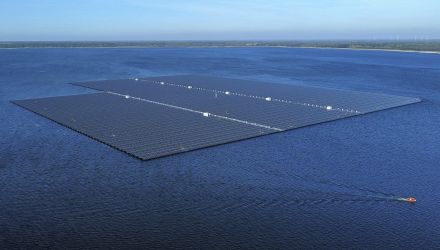Iraq is sucking the oxygen out of any long-term foreign policy discussion, but the US must peer further into the future if it wishes to shape a post-Bush policy.
The National Intelligence Council has published four widely different pictures of the world in 2020: Davos World, in which economic globalisation continues but with a more Asian face; Pax Americana, where the US continues to shape the global order; New Caliphate, where Islamic religious identity challenges the dominance of western norms; and Cycle of Fear, in which non-state forces create shocks to security that produce an Orwellian society.
Which is most likely? Technological change will continue to push globalisation but three factors will shape the political outcome.
First is Chinese power and how it is used. Polls show that a third of Americans believe China will "soon dominate the world", but despite its remarkable growth, China's income per capita is only a twenty-fifth of that of the US. While it is possible that China's total economy could equal that of the US in 30 years or so, American per capita income is likely still to be four times that of China. This is not like a century ago when a rising Germany surpassed Britain in industrial strength by 1900.
The big question for China will be its internal evolution. It has lifted 400m people out of poverty since 1990 but another 400m live on less than $2 per day. Unlike India, China has not solved the problem of political participation. If China turns to nationalism as a social glue to replace its eroded communism, it could lead to a more aggressive foreign policy. Or it may deal with its problems and become what the Bush administration calls a "responsible stakeholder" in world politics.
Political Islam and how it develops will be the second factor. The struggle against extreme Islamist terrorism is not a "clash of civilisations" but a civil war within Islam. A radical minority is using violence to impose a simplified and ideological version on a mainstream with more diverse views. While the largest number of Muslims live in Asia, they are influenced by the heart of this struggle in the Middle East, an area that has lagged behind the rest of the world in globalisation, openness, institutions and democratisation.
More open trade, economic growth, education, development of civil society institutions and gradual increases in political participation might help strengthen the mainstream over time, but so could the way Muslims are treated in Europe and the US. Equally important will be whether western policies towards the Middle East satisfy mainstream Muslims or reinforce the radicals' narrative of a war against Islam.
The third determinant will be American power and how it is used. The US will remain the most powerful country in 2020, but the paradox is that the strongest state since Rome will not be able to protect its citizens acting alone. The US's military might is not adequate to deal with threats such as global pandemics, climate change, terrorism and international crime. These issues require co-operation and the soft power of attracting support. Defeating Islamist terrorism, for example, requires international intelligence and police co-operation, as well as drying up the sources of radical recruits.
While hard military power will remain crucial for deterrence, alliances and stability, if we use it in the wrong way, we will undercut the soft power we need to win. Thus far, intelligence reports that US policies have created more new terrorists than they have destroyed. One of the determinants of the future will be whether the US recovers the ability it once had in the cold war to combine hard and soft power into smart power.
If these three forces move in a favourable direction, the most likely world will be a relatively optimistic combination of globalisation with a more Asian face plus Pax Americana.
Events, however, could derail this possible future. My top candidates include: political instability in China that creates a prolonged slump, violence and a more aggressive foreign policy; a conflict or revolutions in the Gulf that disrupt access of the world economy to the region that holds two-thirds of oil reserves; a pandemic that produces widespread deaths, economic dislocation and closure of borders; acts of terrorism with weapons of mass destruction that lead not only to millions of deaths, but to our imposing self-destructive restrictions and loss of liberties at home; climate change that occurs more quickly than expected or a catastrophic event such as the collapse of the Antarctic ice shelf.
There are other candidates. I assume that HIV-Aids will continue to cause untold suffering, particularly in Africa, but will not change relations among the great powers. I may be wrong. I have also assumed that demographic decline in Europe, Russia and Japan, as well as differences in their interests, will prevent their individual rise to superpower status or the creation of an alliance to balance US power.
The point is not whether my guesses are correct, but that policy debates should focus more on developing a longer-term vision. We are making choices that affect those futures every day, and it is important to educate our guesses: 2020 is not that far away.
The writer teaches at Harvard in the Kennedy School of Government's Belfer Center for Science and International Affairs and is the author of Soft Power: The Means to Success in World Politics.
Nye, Joseph. “The Long View on China, Political Islam and American Power.” Financial Times, February 15, 2007





